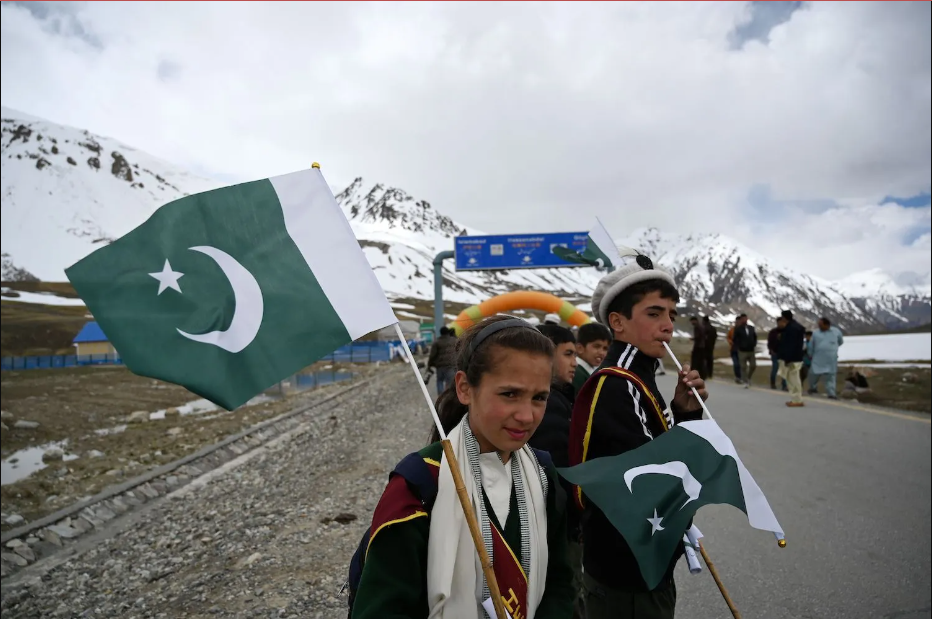The region of Gilgit-Baltistan is of great significance. It shares borders with China on the North and Afghanistan is connected through the Wakhan Corridor. In the South and South East, it is connected to IIOJK and in the West by Chitral. In the region of Gilgit, a part of the great game was played which is referred to as Gilgit game. Since the liberation, the region has been confronted with some issues. The foremost issue is the constitutional status of the region.
In November 2020, the then government announced to make Gilgit-Baltistan a provisional province, a long time popular demand. The decision was taken while taking all stakeholders on board to fulfill the wishes of the people. The issue of sectarianism is no doubt a threat to the stability of the region. The region has known a history of sectarian turbulence and an odd incident can trigger serious disturbances. During the past several years, there has been a significant realization, especially among the longtime popular demand youth of the region. Positive gestures have been observed where Sunnis have been attending Muharram processions and Shia ulema attending a Tablighi ijtimah in Chilas. We must continue our efforts to forge brotherhood by changing the mindset for maintaining sectarian harmony.
Recently, people in Gilgit protested against the Khalsa land issue and demanded from the administration to do away with this colonial concept. The Khalsa Land refers to (unoccupied barren land) which is the property of the government since the time of Dogras. The protestors also accused that the Khalsa land has been occupied by influential people or allotted by the courts which is the property of communities. The Gilgit-Baltistan government has already constituted a committee to revise the existing policy on Khalsa land. Another issue is the concern of the locals on the imposition of taxes through the Gilgit-Baltistan Revenue Authority Bill 2022. The bill has recommended new taxes on 135 items. The people of the region feel that they are economically weak due to non-availability of agricultural land and the imposition of such taxes will further affect their economic condition. Therefore, the imposition of taxes is widely being opposed by the people and is being linked with the constitutional status of the region.
The revenue authority has been recently set up in Gilgit-Baltistan by the government with a view to helping the government to generate some funds and revenue at the local level. However, there is a need for the GB government to educate locals on this new concept of revenue. Another issue is power outages in the region, especially in winter. The demand in the region is 280 MW and shortfall is 180 MW. In the region, the biggest source of electricity is hydel power. The Indus River and its tributaries have the potential to generate 40000 MW of electricity. There is a host of reasons for power outages which include population explosion in Gilgit and Skardu cities, decrease in the flow of water in winter, mismanagement, special connections, non-payment of bills, and also no connection with national gird. The people are forced to use alternative means like burning of wood, kerosene oil, oil heaters, LPG, and old-age lanterns. In winter people stay indoors and store food during summers and use locally made wood stoves. As a result of freezing temperatures and power outages, thousands of people migrate to Rawalpindi, Islamabad, and Lahore etc.
Another issue is the subsidy on wheat introduced in 1976. The federal government subsidized the supply of 1.6 million sacks to Gilgit-Baltistan. The quota has now been reduced due to the economic crisis at federal level and no subsidy has been granted. The demand of the wheat in the region is 160,000 metric tons per annum. According to media reports, the Economic Coordination Committee has asked the GB government to increase the sale price of wheat by up to 70 percent, after which the wheat quota will be increased. The region of Gilgit-Baltistan is at high risk of food insecurity and may become a food insecure region. It is the responsibility of the government of Gilgit-Baltistan to ensure provision of basic necessities of life to locals, especially in winters. The provincial and federal governments must take steps to address these issues in the best interest of people of the Gilgit-Baltistan.





